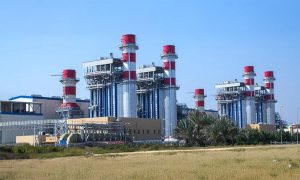Case excavators for remote job-site
20 years of service expected from excavators


Spitsbergen is building a 1.5km road to a new geodetic observatory that will measure the Earth’s rotational speed and how this is affected by solar storms and disturbances
Two Case crawler excavators have been purchased by a Norwegian government research facility for infrastructure works on the island of Spitsbergen, which has the most northerly settlement in the world for research staff.
The organisation is building a 1.5km road to a new geodetic observatory, which will house a VLBI antenna, which is part of a global network of VLBI antennas that measure the Earth’s rotational speed and how this is affected by solar storms and disturbances, helping to predict earthquakes and tsunami.
“We needed a machine to use in the city for smaller digging jobs, so opted for the CX130C, but the CX210C was chosen for road construction and ditching jobs as we will install fibre cables in 2014, so there will be a lot of trench digging in 2013 and 2014,” said Hallgeir Reitan, technical manager at Kings Bay, the research facility.
“Two new stations are planned for 2014/15 and there will be new roads and trench routes to be built.”
Reitan says that the company had researched the excavators thoroughly before concluding the deal, and was well aware of the Case reputation for durability and reliability in tough working conditions.
“The main reason for choosing Case was the attitude towards service and back-up from the dealer,” he said.
“There are only two flights a week here and it is therefore imperative that any problems can be solved swiftly with the service tools from the dealer. The solutions that the dealer has provided with regards to troubleshooting and the back-up of service engineers were a big factor in our decision.”
The location is so far north that in the harsh winter months it will be almost impossible to operate the machines, due to the very low temperatures and strong freezing winds. This means that the equipment has to work particularly hard in the summer months, though Kings Bay is hoping for many years of faithful service.
“We will store the machines inside for the winter, so we expect a long life with up to 20 years of service from the Case excavators,” said Reitan.
The Mapping Authority’s Geodetic Institute also measures and establishes a national reference for coordinates, geoid reference, height reference and post-glacial rebound. It operates a nationwide system of accurate, satellite-based GNSS positioning, which can in turn be used by construction companies to accurately define excavation parameters and property boundaries.















